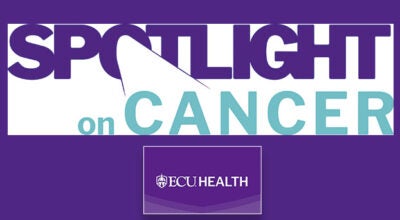Vidant’s KaSheta Jackson recognized for community health events
Published 4:53 pm Wednesday, February 16, 2022

- KaSheta Jackson
|
Getting your Trinity Audio player ready...
|
KaSheta Jackson, vice president of health equity and social impact at Vidant Health, has been awarded the 2022 American Nurses Association Innovation Award in recognition of local community health events that she developed.
Jackson created “Community Pop-Ups: A Rural Approach,” a health care delivery model implemented as community-based pop-up clinics across Eastern North Carolina to address social and economic health care barriers. The program makes health care both more accessible and approachable by directly providing preventative services, improving health care equity, and offering resources within communities with the greatest need. This is done through a system-level collaboration at Vidant Health with community- focused intervention.
Through partnerships with community leaders and other Vidant Health team members, these clinics have evolved from solely offering health care screenings to providing COVID-19 testing, vaccinations, mental health resources, access to fresh produce, and employment opportunities.
Community Pop-Ups have been held in a variety of informal community settings, including baseball fields, farms, and parks, to build trust and improve community engagement. Designed and led by nurses, Community Pop-Ups follow the tenets of a holistic nursing care plan, addressing the community’s physical, mental, and environmental needs.
In 2021, Community Pop-Ups provided care to more than 400 community participants, identified acute diseases, provided numerous jobs, gave away 500 produce boxes, and delivered 500 health passports in rural locations across eastern North Carolina, including Beaufort County, Farmville, Pamlico County, Bethel, Greenville and more. Along with the award, Jackson has been awarded $25,000 towards the program to support further development of community health events in the next year.
In 2022, Community Pop-Ups plans to make a more substantial impact in the communities it reaches and establish a model for addressing the social determinants of health through qualitative data.




